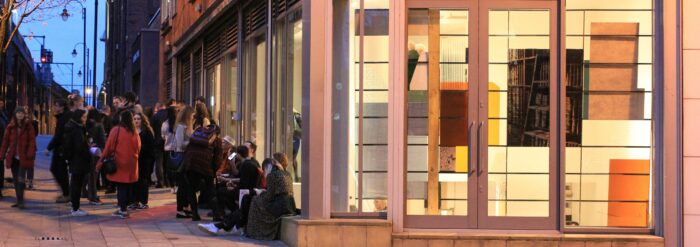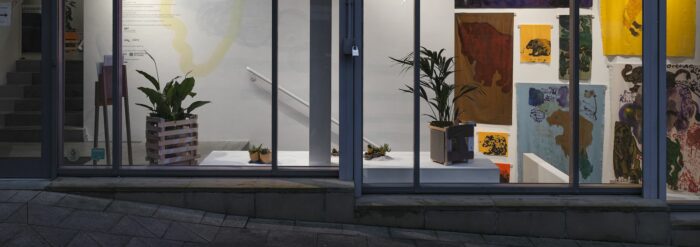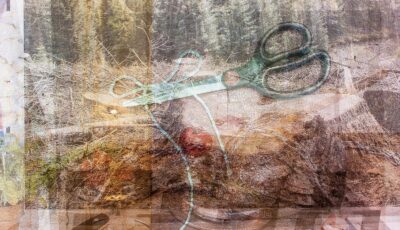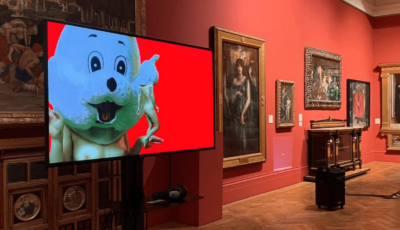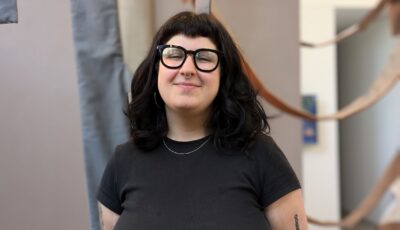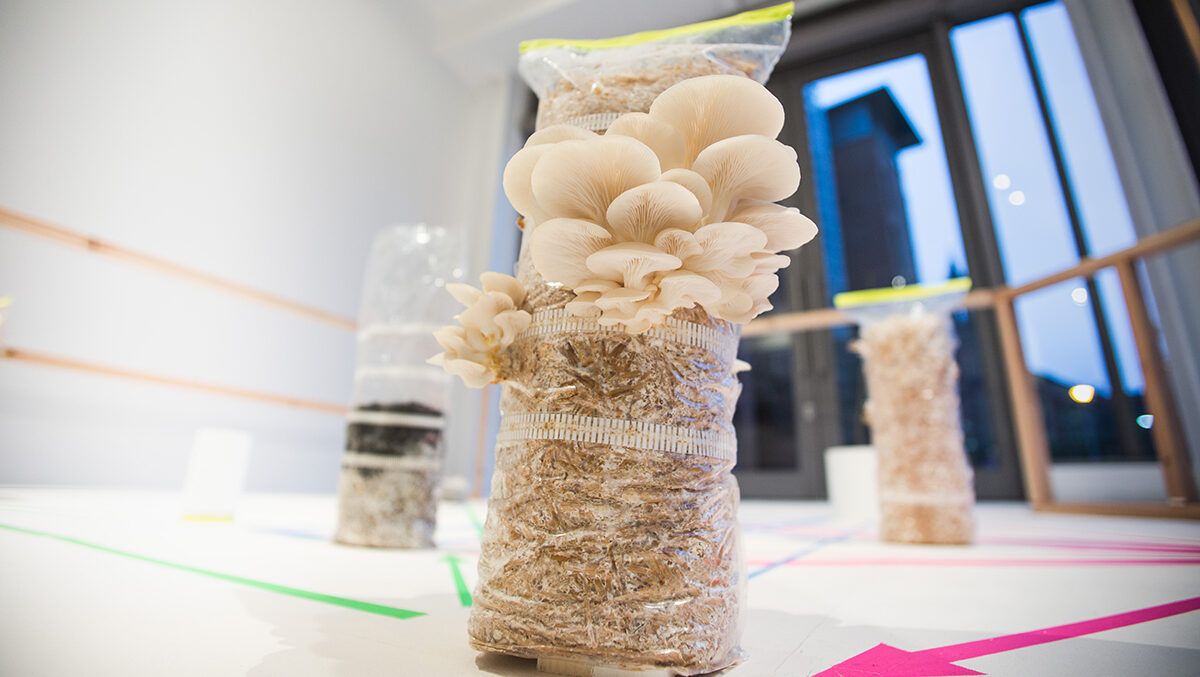
Spotlight: Artists and Sustainability – Jane Lawson
Posted on 18 April 2023
This month we’ve invited Jane Lawson to contribute to our ongoing series Spotlight – Artists and Sustainability, where we ask artists to share short responses about their work and how it might relate to climate change.
Jane Lawson is Artist Environmental Lead for Castlefield Gallery. She has worked for Castlefield Gallery since 2012, first setting up and running the gallery’s Associates programme and then running artist development programmes such as bOlder (a development programme for artists aged over 50) and the Manchester Open winners’ professional development programme.
As well as co-developing and co-leading SUSTAIN, she has kickstarted the SPARK network for artists wanting to intervene in the climate emergency. She’s recently been part of a ten-strong group co-curating Manchester Art Gallery’s Climate Justice gallery which used the Gallery’s collection to highlight narratives around colonialism and extractivism. As an artist, her practice centres on fungus and diagrams. She is currently studying MA Art and Ecology at Goldsmiths.
In what ways do you feel your work might relate to issues of climate change and sustainability, in the content of the work, its narrative, conceptually or theoretically? How might it speak to or challenge public discourse?
All my work relates to climate change in one way or another. It either tries to lay bare the processes that have brought us to this point (the development of the global financial system, the rise of post-truth and the links between Brexit campaigns and climate change denial organisations) or to suggest other forms of social organisation, for example in the project Second Degree Potentias; a potentia being a form of social organisation based around both human and non-human flourishing, which differs from a Utopia in that it’s possible to track the steps from here to the Potentia.
I’ve been working with fungi for the past eleven years and have been very influenced by Radical Mycology – the idea that we can learn from close contact with the highly resilient ad interdependent lifecycles of fungi, how better to treat other beings and our common home.
At the moment I’m studying MA Art and Ecology at Goldsmiths and I’m using the idea of Panspermia – that life arrived on Earth in the form of micro-organisms – as a jumping off point for looking at other possible realities characterised by a regenerative rather than an extractivist mindset. I’m also looking at ways of Being Fungal – inviting people into the lifeworlds of fungi on an experiential level rather than just observing them.
With to regards the materials, processes and techniques you use to produce your work, are there any practical decisions you make with regards climate change and sustainability?
Yes. I really really love glitter but haven’t bought any for years. I still have a weakness for paper and card though. For a recent piece, This is the handful of shadow I have brought back to you, I built a “geodesic pentadome” using coppiced hazel and hemp rope. Initially I was looking at building it from bamboo which would have been imported from China; luckily I got some advice from an experienced dome builder in time to swerve toward hazel instead (and if you want to know where to buy coppiced hazel, chestnut or willow in the South East, I’m your woman).
I’ve grown a lot of mushrooms in single use plastic grow-bags, so I’m learning to grow them in reusable containers instead. And barely ever fly – I think I’ve done five trips by air in the last 21 years – so that restricts my international opportunities. With rail access to Europe I can still get to Venice and places, but it puts a lot of the international art world out of reach; and of course the cost of going by train rather than air is pretty high and not always possible for people.
In general, how do you feel galleries, art spaces, artworks and artists, might be able to contribute, what if any role do you feel they can play in a progressive conversation?
Art institutions and artworks can contribute to shifting thinking and spreading ideas – to questioning the capitalist realist myth that capitalism, though flawed, is the only “realistic” economic system even though its need for constant growth is taking us ever closer to planetary tipping points. And to presenting other possibilities; it’s been said that the future belongs to those who imagine in, and art that helps us imagine better realities makes a lot more sense to me than art that just represents the bad thing, endlessly. I’ve very much had enough of dystopian visions, they just seem self-indulgent; to slightly reword the poet Salena Godden’s quote, fatalism is for lightweights; I’m more with Gramsci (pessimism of the intellect, optimism of the will). Giving up is not an option.
Another thing that art organisations can do is redeploy resources towards responding to the climate crisis. The Laboratory of Insurrectionary Imagination have done great stuff working with arts organisations, including building tools for civil disobedience, coming up with a framework for actions at COP21 in Paris and training audiences in consensus decision-making.
I was really glad to be able to use some Castlefield Gallery resources to kickstart SPARK, a network of artists wanting to intervene in the climate crisis. There’s a lot of interest in ecology in the art world at the moment – not all with the same level of depth – but it is opening up opportunities to spread ideas and knowledge. And the more I can spread the fungal spores, the better!
Are there any tips or advice, anything you have learnt you might want to share with other artists or our audiences?
Keep going. Find your people – they are out there somewhere. If you’re an artist, join SPARK! If you’re feeling hopeless or overwhelmed by climate doom, do something. There’s a great quote from Greta Thunberg, that hope comes from action, not the other way around. So do something, even if it’s as small-seeming as writing to your MP, and find people that you can do more things with.
